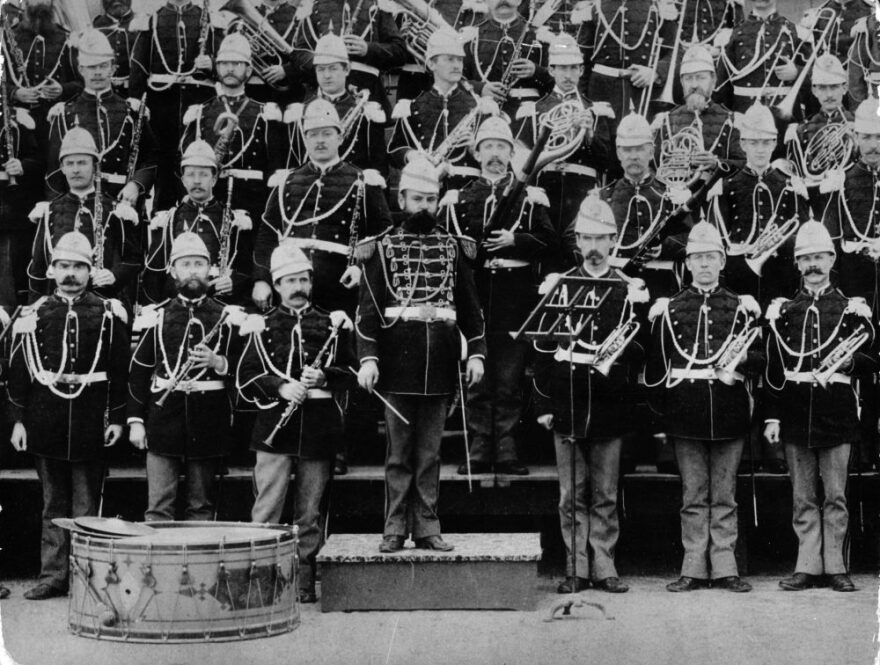If you've ever heard Stars and Stripes forever or seen a sousaphone, you've witnessed John Philip Sousa's legacy.
Sousa, also known as The March King, was an American bandleader and composer.
Sousa was born in Washington D.C. in 1854 and his father was in the United States Marine Band, so he was surrounded by music, especially patriotic music, from birth.
He actually began his musical career playing violin, though, an orchestral instrument not included in bands.
He was a talented violinist and almost joined the circus, but his father wasn't too keen on the idea and enlisted Sousa as an apprentice musician in the Marine Band.
This was all when Sousa was just 13 years old - his rank in the military at the time was listed as "boy."
After Sousa was discharged, he spent time playing in pit orchestras, conducting and learning how to play all kinds of instruments.
He returned to the Marine Band when he was only 26, but this time he wasn't there to apprentice, he was to lead!
As head of the Marine Band, Sousa overhauled its music library and rehearsal processes to transform the band into the finest in the nation.
One important factor that helped make Sousa and his marches so famous was the invention of recording devices.
Columbia had just developed a phonograph when Sousa was leading the Marine Band, and they recorded Sousa's group playing more than 400 pieces.
Because of his stature, Sousa was often asked to write new marches or guest conduct.
In 1930, Sousa traveled to the National Music Camp, now known as Interlochen Arts Camp, to conduct a piece he'd written for the occasion called Northern Pines.
This means that almost 100 years ago, John Philip Sousa was right here where we make this awesome classical music podcast for kids!
Sousa's marches, and most military-style marches, are usually written in five parts.

Can you identify these parts in any of these famous Sousa marches?
If you’re a conductor or a band leader, we’ve also got some re-published versions of the scores for some Sousa's marches, with great notes about both the music and the stories behind it.
Now that you’re an expert, next time you think you recognize a Sousa march, let us know at ClassicalSprouts@Interlochen.org.
Be sure to subscribe and follow @classicalsprouts on Instagram to join our inclusive community.
Help Sprouts grow! Support IPR for more classical music fun, just tell us in the comments that your donation is for Classical Sprouts.
Classical Sprouts is produced by Emily Duncan Wilson. Kacie Brown is the digital content manager.




